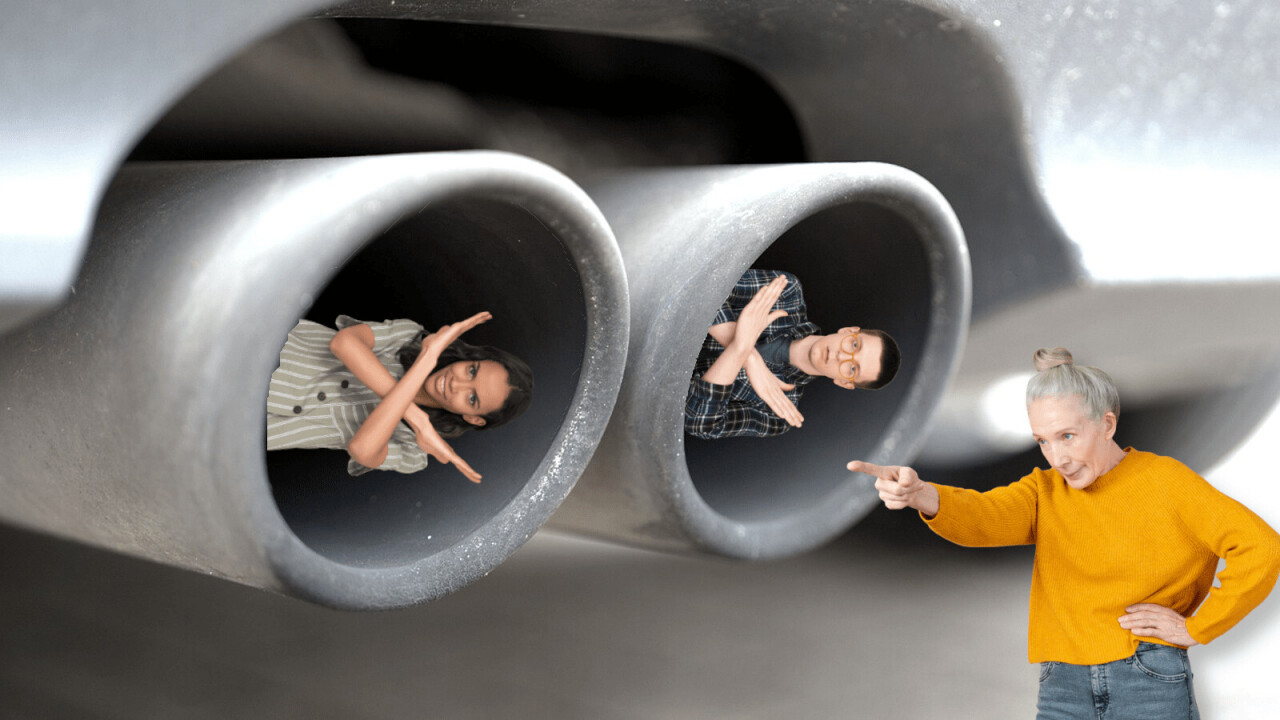
Electric vehicles are sold as a more sustainable option than combustion engine vehicles. Many studies have shown that over their life, EVs are better for the environment. They’re not perfect, but they’re a very good step in the right direction. But that doesn’t seem to stop some from trying to prove the opposite.
As German news outlet De Spiegel reports, a recent study by the IFO, a Munich-based economic research think-tank, claimed that a Mercedes-Benz C-class diesel produces fewer CO2 emissions than a Tesla Model 3.
The study said that the C-class produces 141 grams of CO2 per kilometer, whereas the Model 3 Long-Range Dual Motor produces around 155 to 180 grams of CO2 per kilometer.
[Read: Canyon’s electric car-bike hybrid concept might just be crazy enough to work]
However, this study fell short of taking a holistic approach to considering the CO2 that’s produced when manufacturing the vehicles and making a fair comparison between the power of each vehicle.
Indeed, a study conducted at Eindhoven University of Technology led by electric vehicle advocate and sustainable mobility researcher Auke Hoekstra, has calculated a very different figure.
Hoekstra says that when you consider the CO2 that’s produced from making each vehicle, charging the EV, and fueling the diesel car, the EV comes out as far better for the environment.
According to their calculations, a Tesla Model 3 produces just 91 grams of CO2 per kilometer, whereas the Mercedes-Benz C-class 220d produces 260 grams.
Skeptics are right to point out that making an EV produces more CO2 than making a combustion engine vehicle. However, the total lack of tailpipe emissions eventually makes up for this. In fact, by the time the Tesla has traveled 30,000 kilometers, it will have made up for the extra emissions generated during its manufacture.
During manufacture, the Model 3 produces the equivalent to 51 grams of CO2 per kilometer, whereas the Merc is just 32 grams. Except, for as long as the Mercedes is being driven, it will be generating additional pollution.
Many also forget that producing fuel itself is energy intensive and produces CO2. As countries pivot to renewables like wind, charging an electric car becomes far more sustainable too. In Europe most countries produce energy with a focus on renewables like wind and solar, it’s only really Poland and Estonia that still rely on fossil fuels.
Researchers also point out that the CO2 produced during an EV’s manufacture is calculated on an out-dated figure, which assumes one kilowatt hour of battery capacity generates 175 kilograms of CO₂. The new study suggests that, for Tesla, only 75 kilograms of CO₂ is produced per kilowatt hour of battery that’s manufactured.
If we can take anything away from this, it’s that when all things are considered, EVs are better for the environment, and as battery manufacturing improves they’re only going to get better.
So you like our media brand SHIFT? You should join our SHIFT event track at TNW2020, where you’ll hear how data, autonomy, and connectivity are fueling the future of mobility.

Get the TNW newsletter
Get the most important tech news in your inbox each week.




